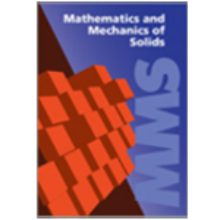Bi-pantographic fabrics are composed of two families of pantographic beams and correspond to a class of architectured materials that are described in plane as second-gradient 2D continua. On a discrete level, a pantographic beam is a periodic arrangement of cells and looks like an expanding barrier. The materialization of a bi-pantographic fabric made from polyamide was achieved by additive manufacturing techniques. Starting from a discrete spring system, the deformation energy of the corresponding continuum is derived for large strains by asymptotic homogenization. The obtained energy depends on the second gradient of the deformation through the rate of change in orientation and stretch of material lines directed along the pantographic beams. Displacement-controlled bias extension tests were performed on rectangular prototypes for total elastic extension up to 25%. Force–displacement measurements complemented by local digital image correlation analyses were used to fit the continuum model achieving excellent agreement.
| Attachments |
|---|


